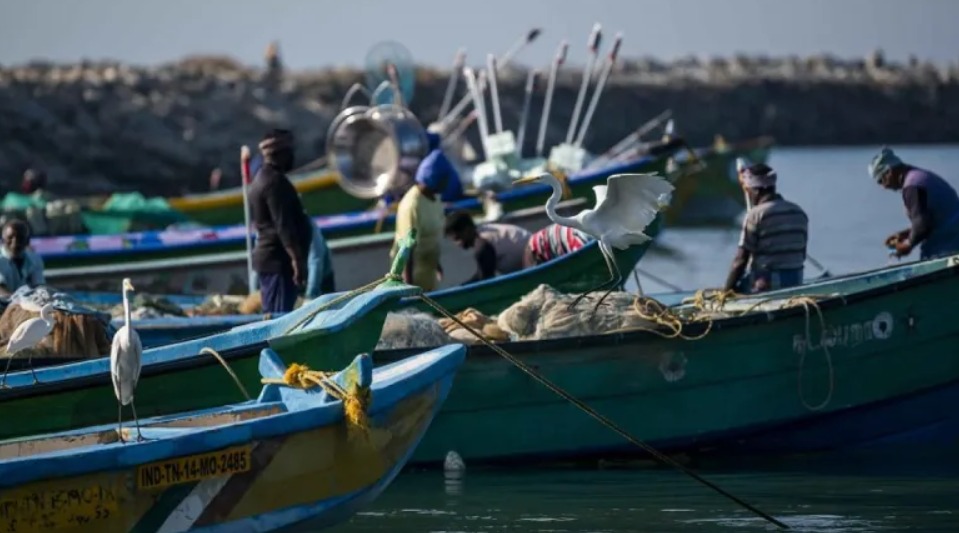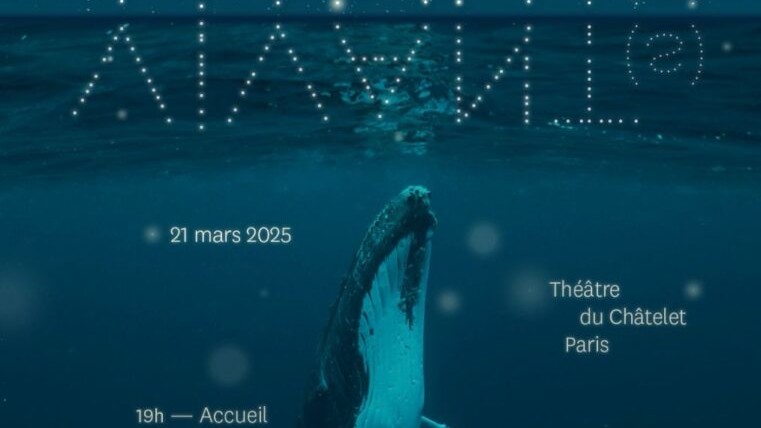On the occasion of the 3rd United Nations Ocean Conference (UNOC), the AFD group transformed France’s priorities into concrete results. Eight strategic areas, major announcements, over €300 million committed, strengthened cooperation, and strong citizen engagement marked its presence in Nice. Here is a look back at a decisive week for the future of the oceans.
Nice, June 13, 2025. Five days of debates, announcements, and international mobilization around a common goal: protecting the ocean. At the 3rd UN Ocean Conference, co-organized by France and Costa Rica, the French Development Agency (AFD) established itself as a key player in discussions, both in substance and approach.
At the heart of the Green Zone, its “Archipelago” pavilion welcomed nearly 30,000 visitors in one week — elected officials, students, artists, NGO representatives, scientists, and more. A total of 50 events took place, covering a wide range of topics. Culture was certainly not left out: the Métis fund unveiled The Ocean Manifesto, a committed collection of around a hundred works by artists worldwide united by their connection to the ocean.
Youth voices were also heard. Nearly 400 high school students participated in a live environmental negotiation simulation, in partnership with the Nice Academy. On this occasion, AFD unveiled an innovative educational booklet, developed with the Ministry of National Education, to help teachers and students better understand ocean threats and act knowledgeably.
Another highlight was the presentation of the special “Seas and Ocean” prize, as part of the “Reinventing the World” podcast contest, during Youth Day on June 12.
From institutional exchanges to public engagement, this multifaceted mobilization allowed AFD to bring to life France’s major ocean priorities. But what exactly are these priorities? And how did AFD contribute to their concrete implementation? Eight key areas were advocated at UNOC:
- High Seas and Biodiversity: a first step towards high ambition
Often overlooked, the high seas — areas beyond national jurisdiction — cover nearly half the planet. Long excluded from conservation efforts, they are now receiving growing international attention.
At UNOC, AFD committed €1 million to the French Biodiversity Office (OFB) to prepare the creation of one of the first “high seas marine protected areas” — between the Crozet Islands (French EEZ) and Prince Edward and Marion Islands (South African EEZ). This project supports the implementation of the historic 2023 UN treaty on marine biodiversity beyond national jurisdiction (“BBNJ Agreement”).
UNOC helped accelerate the process toward the treaty’s entry into force, expected in September at the UN General Assembly, paving the way for a first COP in 2026 to implement it. - Marine Protected Areas: multiplying North-South partnerships
Marine protected areas (MPAs) are among the most effective tools for preserving marine ecosystems. By limiting human activities in key zones, they allow biodiversity to regenerate and contribute to ocean health. They are also essential to achieve the international target of protecting 30% of the ocean by 2030, set at COP15 on biodiversity.
AFD, already supporting over 200 MPAs worldwide, reinforced its support with flagship initiatives. A North-South cooperation project was signed between the Sud region and Costa Rica to support MPA management and raise local awareness (€1.8M, funded by AFD).
At the same time, AFD announced a new €2.5M contribution to the Blue Action Fund, a multilateral public fund dedicated to MPAs in developing countries. With this new funding, AFD’s total contribution reaches €12.5M, demonstrating ongoing commitment to marine conservation. - Sustainable Fisheries: prioritizing resilience
Often practiced by local communities, artisanal fishing is both an economic pillar and an essential source of food security. Making it more sustainable ensures it continues to feed populations while respecting marine balances. Building on conservation efforts, AFD announced increased support for sustainable fisheries value chains, aiming to improve coastal community livelihoods while protecting marine resources.
Signed in Nice, the Kounki project in Guinea (€119M, including €24M from AFD) will structure artisanal fisheries and support coastal communities.
Additionally, Mexico’s CONAPESCA announced the creation of a network of fishing refuge zones, supported by a public policy loan for sustainable fisheries financed by AFD. - Plastic Pollution: taking action together
Reducing plastic waste in the ocean tackles one of the most visible — and persistent — marine pollution scourges. At UNOC, AFD and its partners took a collective step forward by renewing their shared ambition through the second phase of the Clean Ocean Initiative (COI 2.0). Launched in 2018, the COI — an alliance of European public development banks — reached a symbolic milestone this year, with €4 billion already committed to fighting ocean pollution.
AFD, the largest contributor at 42%, used UNOC to jointly announce with partners the launch of the initiative’s second phase: an additional €3 billion mobilized between 2026 and 2030, with the introduction of result monitoring indicators. The coalition also expanded by adding a new multilateral partner, the Asian Development Bank (ADB). - Maritime Transport: ports in transition
Global trade relies on efficient ports, but these infrastructures must reinvent themselves to meet climate challenges. By supporting their transition toward greater sustainability, AFD promotes cleaner, more resilient maritime transport.
AFD signed a letter of intent with Cape Verde to support its Blue Ports strategy, which aims to develop more sustainable ports, environmentally friendly and better adapted to climate change. - Blue Finance: toward shared momentum among public development banks
Ocean ambitions require solid financial engineering. On the sidelines of UNOC, the International Financial Institutions for Sustainable Development (FICS) strengthened this common foundation in support of France’s blue diplomacy. An alliance was launched during the Blue Economy Finance Forum (BEFF) on June 7-8, 2025, ahead of UNOC. The summit gathered 20 public financial institutions — multilateral, bilateral, and national banks — representing over $7.5 billion invested annually in the sustainable blue economy. By committing to increase the impact of their operations, diversify financial tools, and better align with international standards, coalition members expressed their shared ambition: to make finance a structuring lever for ocean protection.
Launched by AFD in 2024, the Blue Carbon Facility — designed to support protection and restoration of coastal carbon-storing ecosystems (mangroves, seagrass beds, salt marshes) to fight climate change — was also highlighted at UNOC, notably through pilot projects in Costa Rica, Tunisia, and Ecuador. - Territorial Governance: coastal territories speak up
Submerged coastlines, accelerated erosion, vulnerable infrastructure — coastal cities and territories are on the frontline of climate change impacts. AFD reaffirmed its commitment to shared ocean governance. Alongside the city of Nice, it supported the creation of a coalition of coastal cities and regions, launched under the President of the Republic’s initiative. Present in places like Cape Town, Porto-Novo, and Rio Grande, AFD already supports numerous cities in adapting to climate change. - Better knowledge for better protection: science supporting ocean policies
Effective ocean protection also means better understanding. AFD highlighted science and research at UNOC 2025 by showcasing several key projects.
Ahead of the conference, a reflection day called “Outre-mer Perspectives” was held in Paris on June 3. It spotlighted the specific challenges of overseas territories, gathering researchers, policymakers, and representatives from the three ocean basins.
Moreover, two publications were presented in partnership with Ifremer, BlueESGAP, IRD, CNRS, and the University of Montpellier. One proposes a new blue accounting method based on sustainability gap analysis (Blue ESGAP) applied to Southeast Asia. The other describes an initiative to train young researchers in marine chemical pollution measurement techniques.
All these initiatives contribute to grounding ocean policies in shared and accessible scientific expertise.




